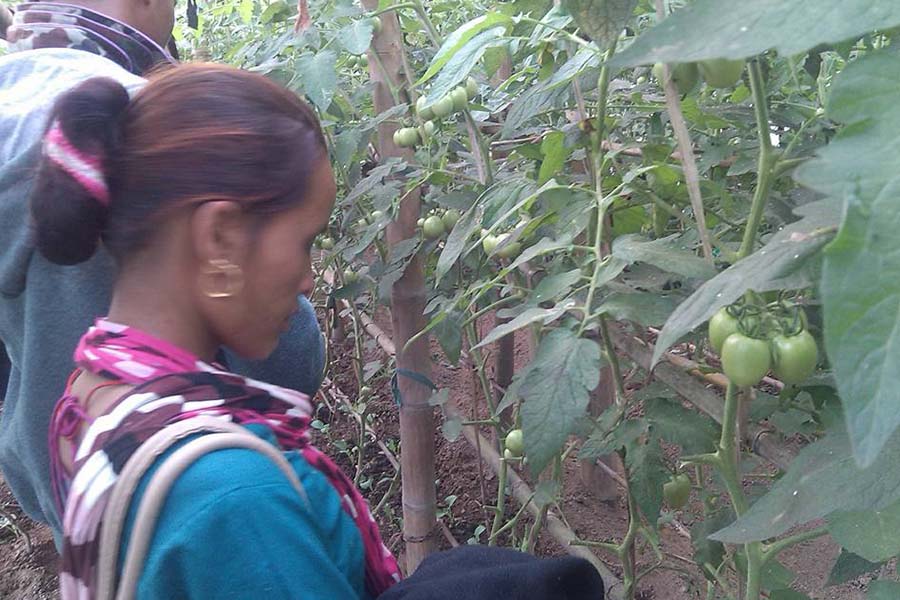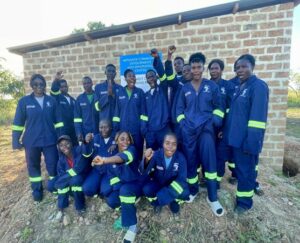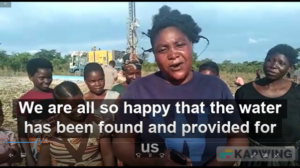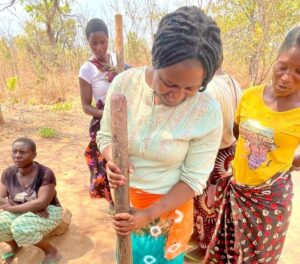Food security is a monumental challenge in the harsh conditions of rural Nepal. The effects of climate change, compounded by the damage caused by the 2015 earthquake have put many smallholder farmers on the brink. Better techniques and crop varieties can help them cope, but farmers are slow to adopt technological innovations as they are perceived as a major risk – if a crop fails, the farmers won’t be able to feed their families.
Tevel, together with its local partner Nyayik Sansar, has been working with farmers in the remote western Ramechhap area providing trainings, extension services, improved seed, microfinance and other agriculture support. In order to encourage farmers to adopt new crops and methods, the Tevel agriculture staff took 30 farmers on an exposure visit this week, to see firsthand how farmers in other areas are using new techniques to significantly increase their yield. They were joined by 11 volunteers from Tevel-NS’s Youth Service Program, supported by the American Jewish Joint Distribution Committee, who are serving in earthquake-stricken communities to help them recover from the disaster.
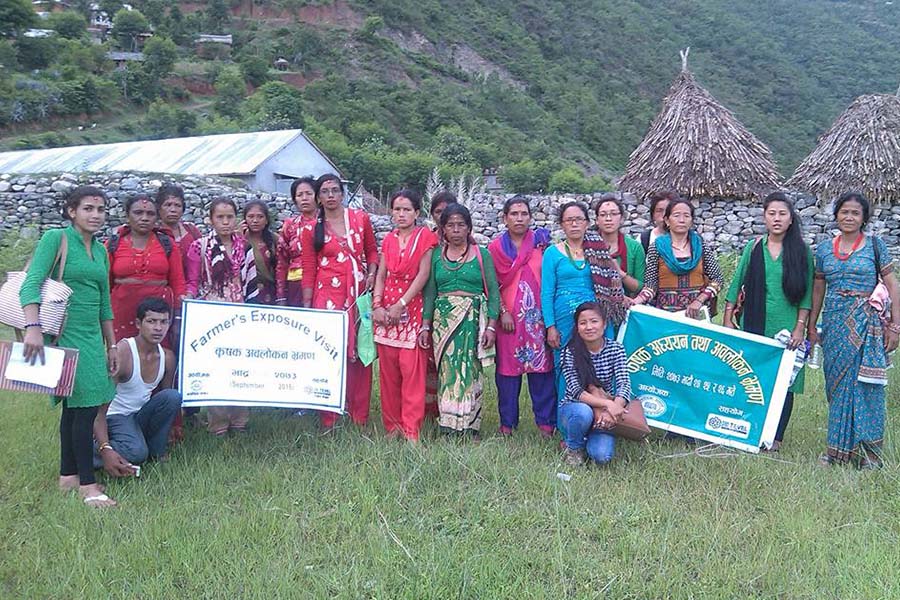
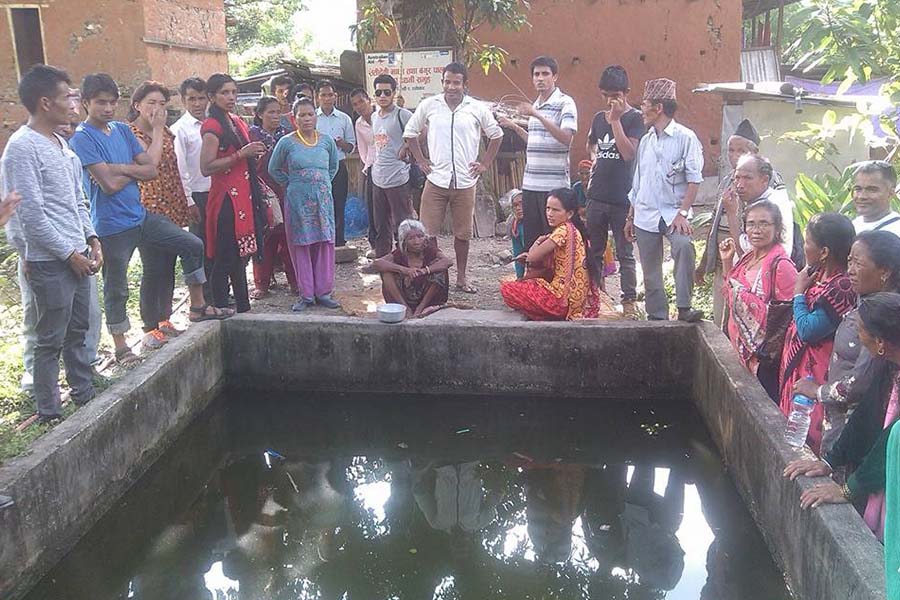
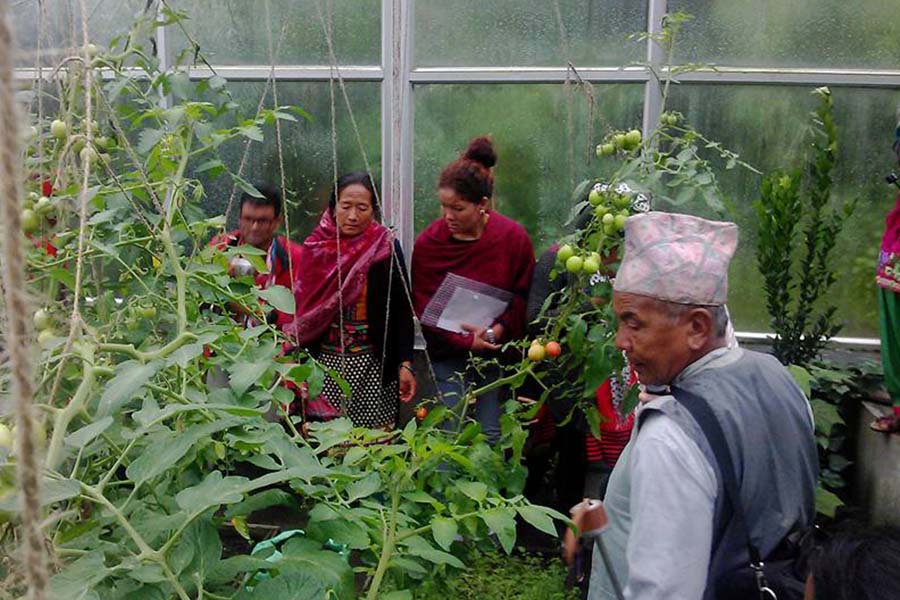
For most of the farmers, it was the first time they had traveled outside their village area, and certainly the first time they had the chance to see successful commercial farming initiatives. For example they visited a commercial farm where despite a lack of water and relative distance from the market, one farmer has a built a successful agribusiness using sustainable methods Tevel-NS advocates. In Sundrowati, another Tevel-NS work area, they saw mid-hill farmers raising commercial ginger, tomatoes, cauliflower and cabbage and running a collection center and community seed production project. “These visits are really important for the farmers”, said Samyam Manali, one of Tevel-NS’s agriculture field officers, “They saw with their own eyes that it really can work, and that farmers just like them are earning money using sustainable farming practices. Now they want to try too.”
The trip also connected the farmers from the remote villages with DADO, the agriculture district office of the Nepali government, which offers a variety of valuable services to small farmers. Due to their remote location and lack of access to information, they had never benefited from the support services before. Several more exposure visits are planned for farmers in other areas in the coming months.

